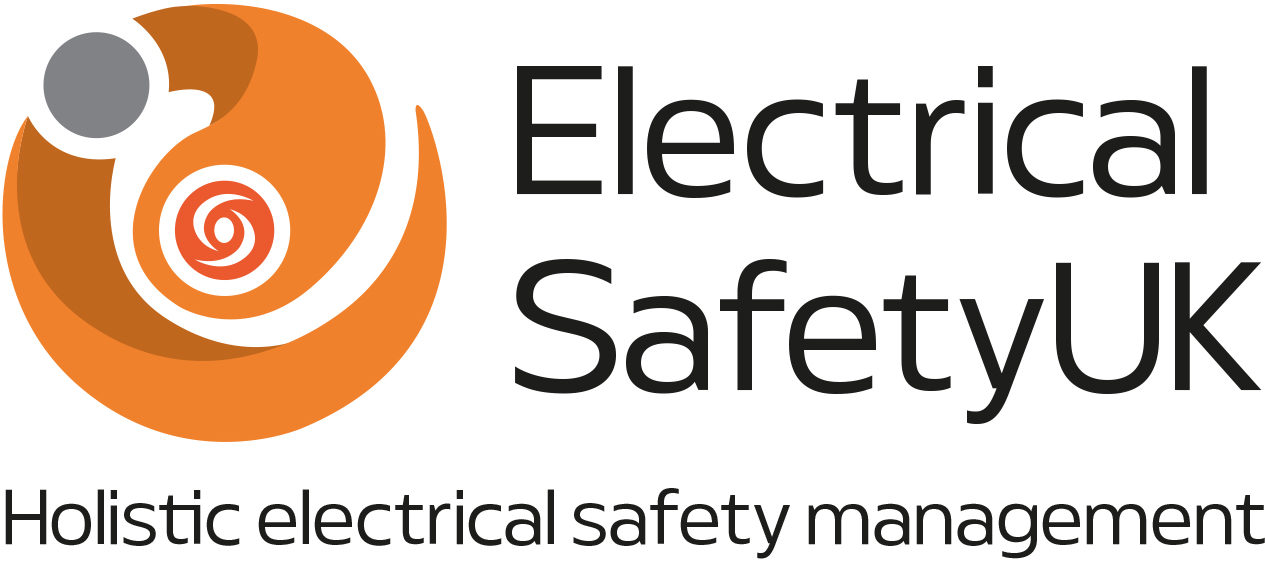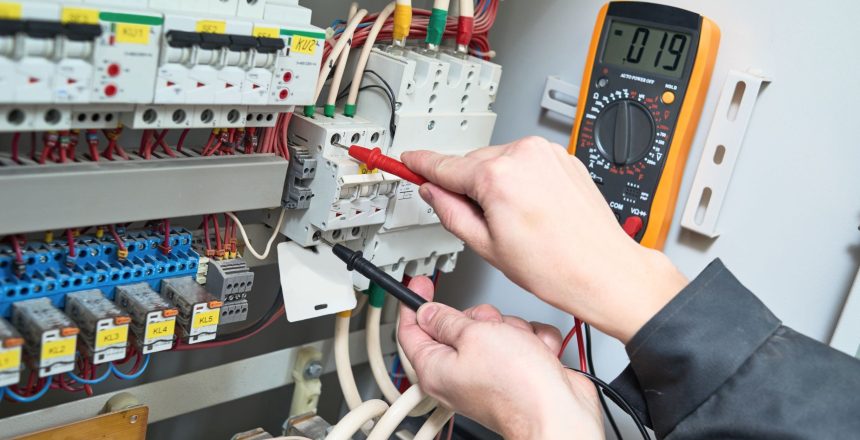What is an Electrical Duty Holder?
Coming into force on the 1st April 1990 Regulation 3 of the Electricity at Work Regulations 1989 introduced the term ‘Duty Holder’, or more specifically ‘persons on whom duties are imposed’. The introduction to HSE publication HSR 25: Electricity at Work Regulations 1989; Guidance on the Regulations clarifies in paragraph 5 that ‘[t]he guidance is primarily for duty holders (including those involved in the design, construction, operation or maintenance of electrical systems and equipment), engineers, technicians and their managers’.
The term Duty Holder is referred to in several pieces of legislation, this article refers specifically to the term ‘electrical duty holder’. Several terms have been further introduced by bodies and companies to help establish the hierarchy of accountability, these include Principal Duty Holder, Appointed Duty Holder, Accountable Duty Holder, Responsible Person, Designated Person, and variations thereof.
What does the law require?
The best place to start is the Health and Safety at Work Etc. Act 1974. Section 2(1) requires every employer to ensure, so far as is reasonably practicable, the health, safety, and welfare of all his employees. Section 2(2) then goes on to specifically identify provision and maintenance of plant and systems; use, handling, storage and transport of articles and substances; provision of information, instruction, training, and supervision; access and egress and a safe and healthy environment. Section 3 extends these duties to cover persons, not in their employment, but who might be affected. Section 4 deals with shared premises and working on other employers’ premises.
Employees are not ‘let off the hook’, they too have responsibilities in law. Section 7 requires employees to take due regards for their own health and safety and the health and safety of others who are affected by their ‘acts’ or ‘omissions’ at work. They must also co-operate with their employer so far as is necessary to permit compliance. Section 8, an often-undervalued aspect of the Act, compels persons not to ‘intentionally or recklessly interfere with or misuse anything provided in the interest of health, safety or welfare’.
Using the company as a protective shield for the actions of an individual or group of persons is not permitted by the Health and Safety at Work Etc. Act 1974. Section 37 clarifies that where an offence committed by a ‘body corporate’ is proven to have been committed with the consent or connivance of, or have been attributed to any neglect on the part of any director, manager, secretary or other similar officer of the body corporate then they, as well as the body corporate, shall be guilty of that offence and shall be liable to be prosecuted. Vitally important is the inclusion of the statement ‘or a person who was purporting to act in any such capacity’.
Not a director, manager, or supervisor? Section 36 of the Health and Safety at Work Etc. Act 1974 says that where an offence has been caused by some ‘other’ person then that other person may be charged with, and convicted of, the offence.
Since the Health and Safety at Work Etc. Act 1974 can only cover general health and safety concerns, Section 15 permits more specific controls to be introduced: enter the Electricity at Work Regulations 1989.
So what does the Electricity at Work Regulations 1989 actually say?
Regulation 3(1) states: ‘Except where otherwise expressly provided in these Regulations, it shall be the duty of every:
(a)employer and self-employed person to comply with the provisions of these Regulations in so far as they relate to matters which are within his control;’
Regulation 3(2) states ‘It shall be the duty of every employee while at work –
(a)to co-operate with his employer so far as is necessary to enable any duty placed on that employer by the provisions of these Regulations to be complied with; and
(b)to comply with the provisions of these Regulations in so far as they relate to matters which are within his control’.
For clarity, reference to Mines and to Quarries has been excluded.
The requirements of the Electricity at Work Regulations 1989 are concerned with protecting against the dangers of electricity which is defined in Regulation 2. Danger means the risk of injury and “injury” means death or personal injury from electric shock, electric burn, electrical explosion or arcing, or from fire or explosion initiated by electrical energy, where any such death or injury is associated with the generation, provision, transmission, transformation, rectification, conversion, conduction, distribution, control, storage, measurement or use of electrical energy’.
“electrical equipment” includes anything used, intended to be used or installed for use, to generate, provide, transmit, transform, rectify, convert, conduct, distribute, control, store, measure or use electrical energy’.
Regulation 4 of the Electricity at Work Regulations 1989, known as the omnibus regulation, covers the four distinct areas of construction, maintenance, work activity and equipment provided to protect persons then leads onto Regulation 4 through to 16 inclusively. Some of the regulations are accompanied by the text ‘so far as is reasonably practicable, whilst Regulations 4(4), 5, 8, 9, 10, 11, 12, 13, 14, 15 and 16 have no such qualification, and are regarded as being absolute in their requirements.
It is important to note that the requirement placed on duty holders, whether they are employees or part of the employer structure relate to matters that are within their control, no mention is made of level of understanding, however, matters that are outside of their control are excluded from their duties.
It is also worth noting that duties placed on employees (technically we are all employees unless self-employed) apply only whilst we are at work. However for the employer (remember Section 37 of the Health and Safety at Work Etc. Act 1974 that references directors, managers, secretaries or other similar officers of the body corporate), they have a duty without being time-bound: in other words, managers, supervisors and chargehands must ensure that their work team are safe, even whilst they are not at work.
Need an in-depth understanding of the general requirements of the Electricity at Work Regulations 1989? Try this on-demand course.
Is there any other guidance?
Yes, this is what HSE Guidance Document HSR 25- Electricity at Work Regulations1989; Guidance on the Regulations has to say on the matter of Duty Holder:
‘51 For the purposes of the Regulations, an employer is any person or body who:
(a)employs one or more individuals under a contract of employment or apprenticeship; or
(b)provides training under the schemes to which the HSW Act applies
54 Regulation 3(2)(b) places duties on employees’ equivalent to those placed on employers and self-employed people where these are matters within their control.
55 This arrangement recognises the level of responsibility which many employees in the electrical trades and professions are expected to take on as part of their job. The ‘control’ which they exercise over the electrical safety in any particular circumstances will determine to what extent they hold responsibilities under the Regulations to ensure that the Regulations are complied with.
56 A person may find themselves responsible for causing danger to arise elsewhere in an electrical system, at a point beyond their own installation. This situation may arise, for example, due to unauthorised or unscheduled back feeding from their installation onto the system, or to raising the fault power level on the system above rated and agreed maximum levels due to connecting extra generation capacity etc. Because such circumstances are within their control, the effect of regulation 3 is to bring responsibilities for compliance with the rest of the Regulations to that person, thus making them a duty holder.
60 In the context of the Regulations, where the risk is very often that of death, e.g. from electrocution, and where the nature of the precautions which can be taken are so often very simple and cheap, e.g. insulation, the level of duty to prevent that danger approaches that of an absolute duty.
But I have not signed a piece of paper to accept my Duty Holder responsibilities
Importantly, to be a duty holder, matters should be within your control – you should have both the time and the resources to undertake the role; you may be in a position to delegate some of your tasks to others, however, you remain accountable for those actions. Paragraph 5 of the introduction to HSR 25 specifically identifies those involved in the design, construction, operation or maintenance of electrical systems and equipment, as well as engineers, technicians and their managers as being Duty Holders. Sections 2, 3 and 4 of the Health and Safety at Work Etc Act also places duties on employers (including those representing the employer or body corporate); this is the case whether it has been confirmed in writing or not.
Following an investigation, the Enforcing Authority will identify those on whom duties were placed, although only a judge can make ruling on legal definition. Duty holders may change as circumstances change; however, it must be considered that the law requires that it must relate to matters that are ‘within your control’.
Do I need to think about anything else?
Often, when prosecutions for electrically related incidents are set before the courts, the Electricity at Work Regulations 1989 is not the primary legislation stated in the case; this will depend on the nature of the circumstances. Notable legislation quoted include the Health and Safety at Work Etc. Act 1974, the Management of Health and Safety at Work Regulations 1999, The Construction (Design and Management) Regulations 2015 and the Provision and Use of Work Equipment Regulations 1998.
But we don’t undertake electrical work, does that mean I have one less thing to worry about?
Unfortunately, not. The regulations apply to those who use electrical equipment, and to those who work alongside electrical systems, where danger might be present. Tree-surgeons receiving an electric shock from overhead lines, farmers contacting transmission lines with their farming equipment, scaffolders working on site and construction workers coming into contact with buried services are all at risk, and therefore are all covered by aspects of the Electricity at Work Regulations 1989. Therefore, companies that exposed their employees to such risks, must ensure that they have safe systems of work in place to protect their employees from the dangers of electricity.
But what if all I do is answer the phone all day?
This is still an important job, and you are still required to comply with the Electricity at Work Regulations 1989 with regards to matters that are within your control. The law assumes that you have a certain level of understanding of electrical danger, that using equipment which is clearly defective is wrong, and undertaking electrical repairs when you are not competent is not acceptable whilst a work, the very same rules apply.
However, for purpose of litigation, it is strongly recommended that such instruction is communicated; and in the case of a prosecution, the Enforcing Authorities will always look at the contribution that the employer, and its officers made, or failed to make.
What happens if it all goes wrong?
Many of us are aware of the criminal sanctions available through the course, including fines and imprisonment, served both against the company and individuals. It should be remembered that this sits under criminal law, resulting in a criminal record, and all of the consequences that this may bring with it.
Incidents are costly, loss of production, repairs and replacement of plant and equipment, increases in insurance premiums and damage to reputation often play a bigger part. The costs of dealing with the aftermath of an incident far outweigh the cost of compliance, and even if it all does go wrong, being able to demonstrate to the courts that there was intent to comply, and the programme had commenced will be taken into consideration in any proceedings.
As a duty holder, you may have minimal accountability or have a significant part to play in electrical safety management and electrical infrastructure under your control. Sites, and the activities that they undertake varies greatly, therefore, it is difficult to produce a prescriptive Duty Holder checklist that covers every situation. However, our Free Electrical Health Check is a good place to start, and our electrical safety audit will give you a good idea of how well you are doing, and what areas need to be strengthened.
Time is on the side of the enforcing authority, and inspectors from the Health and Safety Executive are well trained in identifying route, underlying and immediate causes to a breach of law. They will always focus on what contribution the employer made to a contravention, and if an individual or group of individuals are accountable for that contravention. Only in rare situations are workers held to account, where their personal actions were far outside the standard expected in law. Even where an individual takes a ‘short-cut’, the focus will be on the employer, including the team, to establish to what level ‘short-cuts’ were discouraged.
Remember, at the end of the day, health and safety law is intended to protect people, and ensure that they return home each day in a safe and healthy condition. Regrettably, most legislation has been introduced because people have forgotten this golden rule.
Let’s keep safe out there!
Some examples of when it did go wrong:
A construction company undertaking excavation work has been fined £25,000 for safety breaches after a worker was burned by striking underground electrical cables https://www.theconstructionindex.co.uk/news/view/contractor-fined-for-cable-strike-burns
Prison for scrap metal trader over employee’s shock
https://www.ioshmagazine.com/prison-scrap-metal-trader-over-employees-near-fatal-electric-shock
DB CARGO FINED £2.7M FOR FAILING TO SECURE MARSHALLING YARD https://www.ioshmagazine.com/db-cargo-fined-ps27m-failing-secure-marshalling-yard
£1M FINE FOR NUCLEAR WEAPONS FACILITY AFTER ELECTRICIAN’S BURNS https://www.ioshmagazine.com/ps1m-fine-nuclear-weapons-facility-after-electricians-burns
INCOMPETENT SITE MANAGEMENT LANDS DIRECTOR WITH SUSPENDED JAIL SENTENCE https://www.ioshmagazine.com/incompetent-site-management-lands-director-suspended-jail-sentence





